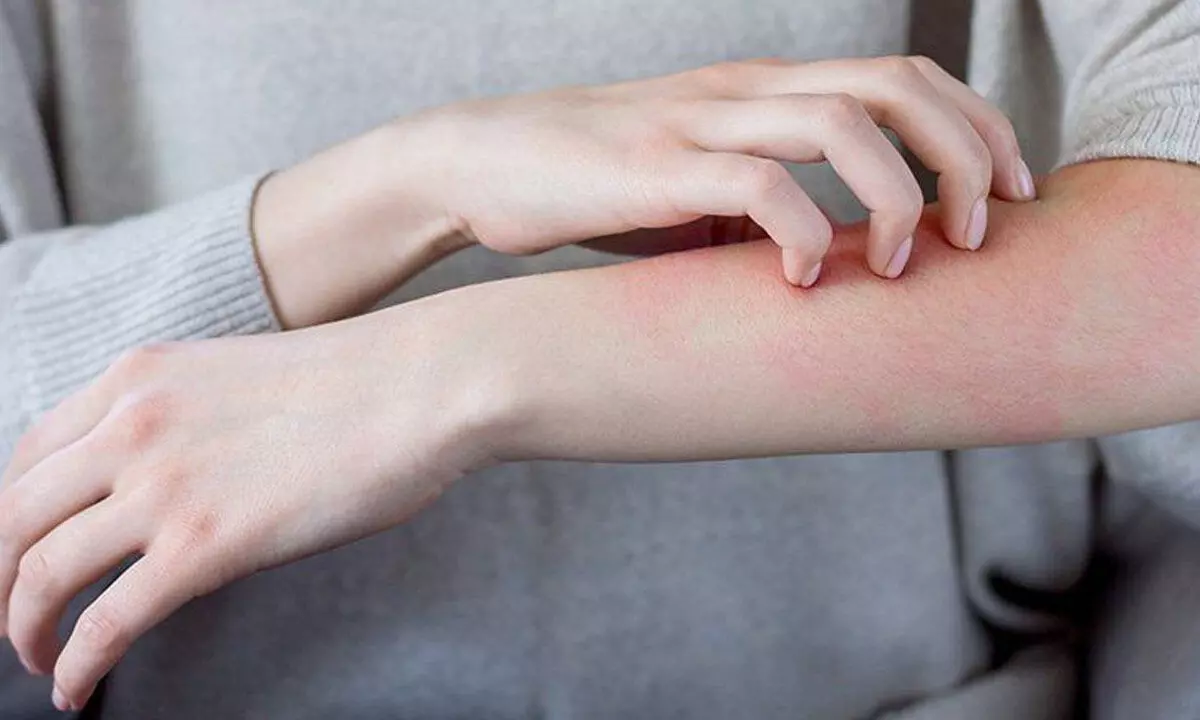AI can help identify, manage atopic dermatitis

Artificial Intelligence (AI) can be a great tool in diagnosing and management of atopic dermatitis -- a chronic skin condition -- leading to more accurate, early, and standardised identification of the condition, thus optimising patient outcomes, according to a report.
New Delhi: Artificial Intelligence (AI) can be a great tool in diagnosing and management of atopic dermatitis -- a chronic skin condition -- leading to more accurate, early, and standardised identification of the condition, thus optimising patient outcomes, according to a report.
Atopic dermatitis is a complex disease presenting with a range of clinical manifestations and symptoms. In severe cases, atopic dermatitis is associated with sleep disturbances due to the pruritic rashes that appear on the skin during a flare-up, depression, anxiety, and loss of productivity.
Effective management of atopic dermatitis has been one of the top priorities for physicians over the years, as the quality of life in these patients is compromised due to the disruptive symptoms that they experience, which include itchiness and skin inflammation.
As the diagnosis of atopic dermatitis is primarily clinical, it may be subjective, resulting in variability in its diagnosis. In the era of AI, various trends have been observed that utilise AI in multiple sectors, having a major impact, especially in healthcare.
The report from GlobalData, a data and analytics company, noted that the lack of objective biomarkers for definitive diagnosis and assessment of the severity of chronic skin disease adds complexity to the diagnostic landscape.
“AI offers innovative solutions to challenges in the field of healthcare through the simulation of human intelligence in machines, with advancements paving the way for significant improvements in diagnostics, drug discovery, and personalised medicine,” said Filippos Maniatis, Healthcare Analyst at GlobalData.
“AI-powered image recognition can determine characteristic patterns of severity in skin lesion images, and through machine training,” Maniatis said, adding that “the diagnostic accuracy for severity can be significantly improved over time”.
Studies have revealed that more personalised treatment plans, continuous monitoring, and leveraging of technological advancements can be achieved through AI. For instance, wearable devices equipped with AI technology could provide ongoing monitoring of skin conditions, delivering real-time data vital for disease management.
Wearable devices equipped with AI help in continuous monitoring, which can further assist physicians in making effective adjustments to treatment plans upon disease severity changes (for example, flare-ups). It has already attracted the interest of multiple technology companies, said the report.
“These technologies highlight their ability to improve current diagnosis and management of the disease. Collaborative efforts between AI specialists, clinicians, and researchers are vital to fully understanding AI’s potential in improving the management of atopic dermatitis,” Maniatis.











